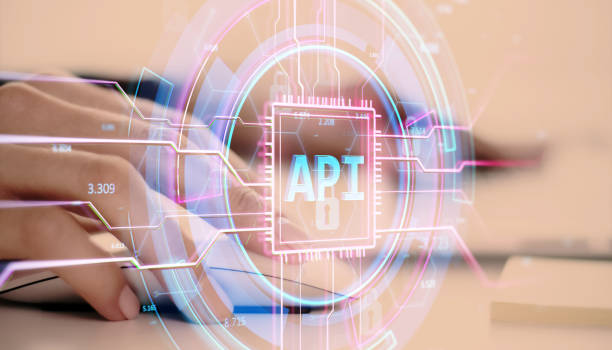What is Artificial Intelligence? Definitions and Key Concepts
Artificial intelligence (AI) is a branch of computer science that deals with building machines capable of performing tasks that typically require human intelligence.
This general definition encompasses a wide range of abilities, including learning, reasoning, problem-solving, natural language understanding, and computer vision.
The main goal of artificial intelligence is to create systems that can automatically and independently perform complex tasks.
One of the key concepts in artificial intelligence is machine learning, which allows machines to learn from data without explicit programming.
This process involves identifying patterns in data and using them for prediction or decision-making.
There are various approaches to machine learning, including supervised learning, unsupervised learning, and reinforcement learning.
Also, natural language processing (NLP) is another important area in artificial intelligence that allows machines to understand and generate human language.
This capability is very important for applications such as machine translation, sentiment analysis, and answering questions.
Computer vision also allows machines to understand and interpret images and videos, which is essential for applications such as face recognition, object detection, and self-driving.
Does your company’s website create a professional and lasting first impression on potential customers? Rasawb, with professional corporate website design, not only represents the credibility of your brand, but also opens a path for the growth of your business.
✅ Creating a powerful and reliable brand image
✅ Attracting target customers and increasing sales
⚡ Get free consultation
A Brief History of Artificial Intelligence from the Beginning to Today
The history of artificial intelligence dates back to the 1950s, when pioneers in the field such as Alan Turing and John McCarthy began exploring the possibility of building intelligent machines.
In 1956, a conference was held at Dartmouth College, which is considered a turning point in the history of artificial intelligence.
At this conference, the term “artificial intelligence” was formally introduced, and the goals and challenges of this field were discussed.
In the 1960s and 1970s, artificial intelligence experienced significant advances in areas such as problem-solving and game playing.
However, this period was also accompanied by limitations in computational capabilities and available data.
In the 1980s, artificial intelligence entered a new phase with the emergence of expert systems.
Expert systems were computer programs that contained specialized knowledge in a particular field and could answer questions and provide recommendations.
However, expert systems also faced challenges such as the need for extensive knowledge and difficulty in updating knowledge.
In the 1990s, with significant advances in computing power and access to big data, machine learning emerged as a dominant approach in artificial intelligence.
Machine learning algorithms, such as neural networks, were able to provide better performance in complex tasks.
Today, artificial intelligence is rapidly evolving and advancing, and it is used in a wide range of industries and applications.
Click here to preview your posts with PRO themes ››
Types of Artificial Intelligence: Introduction and Comparison
Artificial intelligence can be categorized based on various criteria.
One of the most common classifications is based on the level of AI capability.
In this classification, there are three main types of artificial intelligence
- Narrow AI: This type of artificial intelligence is designed to perform a specific task and cannot perform other tasks.
Examples of narrow AI include face recognition, machine translation, and computer games. - General AI: This type of artificial intelligence has cognitive abilities similar to humans and can perform any task that a human can.
General AI is still under development and is not widely available. - Super AI: This type of artificial intelligence has cognitive abilities beyond humans and can surpass humans in all fields.
Super AI is still a theoretical concept and does not currently exist.
Another classification of artificial intelligence is based on the learning method.
In this classification, there are different types of artificial intelligence, including
- Supervised Learning: In this method, the machine learns using labeled data.
- Unsupervised Learning: In this method, the machine learns using unlabeled data.
- Reinforcement Learning: In this method, the machine learns by trial and error.
Choosing the appropriate type of artificial intelligence depends on the desired task and available data.
| Type of Artificial Intelligence | Description | Examples |
|---|---|---|
| Narrow AI | Designed to perform a specific task | Face recognition, machine translation |
| General AI | Has cognitive abilities similar to humans | Still under development |
| Super AI | Has cognitive abilities beyond humans | Theoretical concept |
Applications of Artificial Intelligence in Various Industries
Today, artificial intelligence is used in a wide range of industries and applications.
In the #healthcare industry, artificial intelligence is used to diagnose diseases, develop drugs, and provide personalized healthcare.
In the financial industry, artificial intelligence is used to detect fraud, manage risk, and provide financial services to customers.
In the transportation industry, artificial intelligence is used for self-driving, traffic management, and supply chain optimization.
In the manufacturing industry, artificial intelligence is used to automate processes, control quality, and predict equipment failure.
In addition, artificial intelligence has many applications in other areas such as education, marketing, entertainment, and security.
For example, in education, artificial intelligence can be used to provide personalized training, evaluate student performance, and provide feedback.
In marketing, artificial intelligence can be used to analyze customer behavior, predict their needs, and provide targeted advertising.
In entertainment, artificial intelligence can be used to produce music, movies, and computer games.
In security, artificial intelligence can be used to detect cyber threats, identify suspicious people, and prevent crimes.
In fact, artificial intelligence, as a transformative technology, is reshaping various industries and improving human lives.
Is your online sales not as expected? With Rasawb, solve the problem of low sales and poor user experience forever!
✅ Increase the conversion rate of visitors to customers
✅ Create a pleasant user experience and increase customer trust
⚡ Act now to get a free consultation!
Challenges and Limitations of Artificial Intelligence
Despite significant advances in artificial intelligence, this field still faces challenges and limitations.
One of the main challenges is the need for large and high-quality data to train artificial intelligence models.
Collecting and preparing data can be time-consuming and costly.
Another challenge is the issue of bias in data.
If the data used to train artificial intelligence models is biased, the models will also be biased and may make unfair decisions.
In addition, the issue of transparency and interpretability of artificial intelligence models is also an important challenge.
In many cases, the way artificial intelligence models work is not fully understood, and this can reduce trust in them.
Another challenge in the field of artificial intelligence is the issue of ethics.
The use of artificial intelligence can have serious ethical implications, especially in areas such as privacy, security, and employment.
For example, the use of artificial intelligence to monitor individuals can violate their privacy.
Or the use of artificial intelligence to automate jobs can lead to job losses.
Therefore, it is necessary to carefully consider the ethical issues related to artificial intelligence and create appropriate ethical frameworks for its development and use.
Machine Learning and its Role in Artificial Intelligence
Machine learning is one of the main sub-branches of artificial intelligence that allows machines to learn from data without explicit programming.
In machine learning, machines use different algorithms to identify patterns in data and use them to make predictions or decisions.
There are different approaches to machine learning, including supervised learning, unsupervised learning, and reinforcement learning.
In supervised learning, the machine learns using labeled data.
In unsupervised learning, the machine learns using unlabeled data.
In reinforcement learning, the machine learns by trial and error.
Machine learning plays a very important role in artificial intelligence.
Many applications of artificial intelligence, such as face recognition, machine translation, and self-driving, are based on machine learning algorithms.
With significant advances in machine learning, the capabilities of artificial intelligence have also increased significantly.
Today, machine learning algorithms can perform complex tasks that previously seemed impossible.
For example, machine learning algorithms can recognize images with very high accuracy, understand human language, and even play complex games such as chess and Go at a professional level.
The Future of Artificial Intelligence: Prospects and Possibilities
The future of artificial intelligence is very bright and full of possibilities.
As technology continues to advance, artificial intelligence will increasingly penetrate our lives and create profound changes in various industries.
In the future, it can be expected that artificial intelligence will play a more important role in areas such as healthcare, education, transportation, and manufacturing.
For example, in healthcare, artificial intelligence can be used to diagnose diseases early, provide personalized treatments, and improve the quality of healthcare.
In education, artificial intelligence can be used to provide interactive and engaging training, evaluate student performance, and provide feedback.
In transportation, artificial intelligence can be used for self-driving, traffic management, and supply chain optimization.
In manufacturing, artificial intelligence can be used to automate processes, control quality, and predict equipment failure.
In addition, artificial intelligence can help solve major global challenges such as climate change, food shortages, and poverty.
However, to realize these visions, it is necessary to pay attention to the challenges and limitations of artificial intelligence and provide appropriate solutions to address them.
| Area | Possible Applications of Artificial Intelligence |
|---|---|
| Healthcare | Early diagnosis of diseases, provision of personalized treatments |
| Education | Providing interactive training, evaluating student performance |
| Transportation | Self-driving, traffic management |
| Manufacturing | Automation of processes, quality control |
Ethics in Artificial Intelligence: Responsibilities and Considerations
As artificial intelligence increasingly penetrates our lives, the ethical issues related to it become more important.
The use of artificial intelligence can have serious ethical implications, especially in areas such as privacy, security, employment, and justice.
For example, the use of artificial intelligence to monitor individuals can violate their privacy.
Or the use of artificial intelligence to automate jobs can lead to job losses.
Therefore, it is necessary to carefully consider the ethical issues related to artificial intelligence and create appropriate ethical frameworks for its development and use.
One of the important considerations in the ethics of artificial intelligence is the issue of bias.
If the data used to train artificial intelligence models is biased, the models will also be biased and may make unfair decisions.
For example, if an artificial intelligence model for face recognition is trained using data that mostly includes images of white people, it may perform worse in recognizing the faces of people of color.
Therefore, it is necessary to exercise due diligence in collecting and preparing data to prevent bias.
Another consideration is the issue of transparency and interpretability.
In many cases, the way artificial intelligence models work is not fully understood, and this can reduce trust in them.
Therefore, it is necessary to strive to make artificial intelligence models more transparent and interpretable.
Are you bothered by losing customers who visited your site to make a purchase?
Rasawb is your specialized solution for having a successful online store.
✅ Significant increase in your online sales
✅ Creating trust and professional branding with customers⚡ Get free consultation from Rasawb experts!
Artificial Intelligence Development Tools: Introduction and Review
For developing artificial intelligence applications, there are various tools and libraries that help developers to code more effectively and quickly.
One of the most popular artificial intelligence development tools is Python.
Python is a high-level and multi-purpose programming language that has powerful libraries for machine learning and artificial intelligence.
Libraries such as TensorFlow, PyTorch, and scikit-learn are the main tools for developing machine learning models in Python.
TensorFlow is an open-source library for machine learning developed by Google.
TensorFlow enables the construction and training of complex machine learning models and supports parallel processing on GPU.
PyTorch is also an open-source library for machine learning developed by Facebook.
PyTorch is very popular among researchers and developers due to its flexibility and ease of use.
scikit-learn is a Python library that includes various machine learning algorithms such as regression, classification, and clustering.
scikit-learn is very suitable for small and medium machine learning projects.
In addition to Python, other programming languages such as R, Java, and C++ are also used for artificial intelligence development.
Also, cloud platforms such as Google Cloud AI Platform, Amazon SageMaker, and Microsoft Azure Machine Learning provide powerful tools for developing, training, and deploying artificial intelligence models.
Artificial Intelligence in Iran: Current Status and Future
In Iran, artificial intelligence has been considered as an important and strategic field.
The government and various institutions have made significant investments in this field and are trying to provide the necessary infrastructure for the development and commercialization of artificial intelligence.
Currently, many startups and startups in Iran are active in the field of artificial intelligence and have made significant progress in areas such as natural language processing, computer vision, and robotics.
Universities and research centers also play an important role in the development of artificial intelligence in Iran.
Many of the country’s top universities offer educational and research courses in the field of artificial intelligence, and Iranian researchers publish numerous articles in the field of artificial intelligence in reputable international journals and conferences.
However, the development of artificial intelligence in Iran also faces challenges.
One of the main challenges is the lack of specialized and skilled workforce in this field.
To address this challenge, more investment needs to be made in training and educating specialized human resources in artificial intelligence.
Another challenge is the lack of high-quality and accessible data.
To train artificial intelligence models, there is a need for large and high-quality data, and collecting and preparing this data can be time-consuming and costly.
Therefore, it is necessary to create appropriate mechanisms for collecting and sharing data.
Despite these challenges, the future of artificial intelligence in Iran looks bright.
Given the existing potentials and the efforts made, it can be expected that artificial intelligence will play a more important role in the economic and social development of the country.
Frequently Asked Questions
| Question | Answer |
|---|---|
| 1. What is Artificial Intelligence (AI)? | It is a branch of computer science that aims to create machines capable of simulating human intelligence and performing tasks that require human thinking, such as learning, problem-solving, and decision-making. |
| 2. What are the main types of Artificial Intelligence? | It can be classified into Weak Artificial Intelligence (Narrow AI) that focuses on a specific task, General Artificial Intelligence (General AI) that possesses comprehensive human capabilities, and Super Artificial Intelligence (Super AI) that exceeds human intelligence. |
| 3. Mention some common artificial intelligence applications in our daily lives. | These include voice assistants (such as Siri and Alexa), recommendation systems (such as Netflix and Amazon), self-driving cars, face recognition systems, and spam filters. |
| 4. What is the difference between Artificial Intelligence and Machine Learning (Machine Learning)? | Artificial intelligence is the broader concept of creating intelligent machines, while machine learning is a subset of artificial intelligence that focuses on enabling systems to learn from data without explicit programming. |
| 5. What is Deep Learning? | It is a subset of machine learning that uses multi-layered artificial neural networks (deep neural networks) to process data and discover complex patterns, and it is used in image and speech recognition. |
| 6. What are the most prominent benefits of Artificial Intelligence? | Improving efficiency and productivity, automating repetitive tasks, making better decisions based on the analysis of big data, and developing solutions to complex problems in fields such as medicine and science. |
| 7. What are the main challenges facing the development and deployment of artificial intelligence? | These include the need for vast amounts of high-quality data, privacy and security issues, bias in data and algorithms, and high development and maintenance costs. |
| 8. Does artificial intelligence raise ethical or social concerns? | Yes, it raises concerns related to privacy, algorithmic bias, job losses due to automation, responsibility for errors committed by intelligent systems, and the need for a regulatory framework. |
| 9. How can artificial intelligence affect the future of the labor market? | It can lead to the automation of some routine jobs, but it will also create new jobs that require advanced skills in the development, operation, and maintenance of artificial intelligence systems. |
| 10. What are some modern or promising technologies in the field of artificial intelligence? | These include advanced Natural Language Processing (NLP) (such as large language models such as ChatGPT), Computer Vision, Robotics, and Generative AI. |
And other services of Rasa Web Advertising Agency in the field of advertising
Smart Digital Advertising: A creative platform to improve digital branding with precise audience targeting.
Smart Customer Journey Map: A professional solution to increase site visits by focusing on SEO-based content strategy.
Smart Custom Software: A fast and efficient solution for user interaction by focusing on marketing automation.
Smart Link Building: An exclusive service to grow customer acquisition based on key page optimization.
Smart Sales Automation: Professional optimization to increase sales using SEO-based content strategy.
And more than a hundred other services in the field of Internet advertising, advertising consulting and organizational solutions
Internet Advertising | Advertising Strategy | Advertising Report
Resources
What is artificial intelligence and how does it work?
,Artificial Intelligence: The IBM Comprehensive Guide
,Everything you need to know about artificial intelligence
,What is artificial intelligence? | Oracle
? Rasa Web Afarin, the leading digital marketing agency, paves the way for your business success. From professional online store design to comprehensive SEO strategies, we are ready to distinguish your brand in the online space and bring it to the peak.
📍 Tehran, Mirdamad Street, next to the Central Bank, Southern Kazerun Alley, Ramin Alley No. 6













